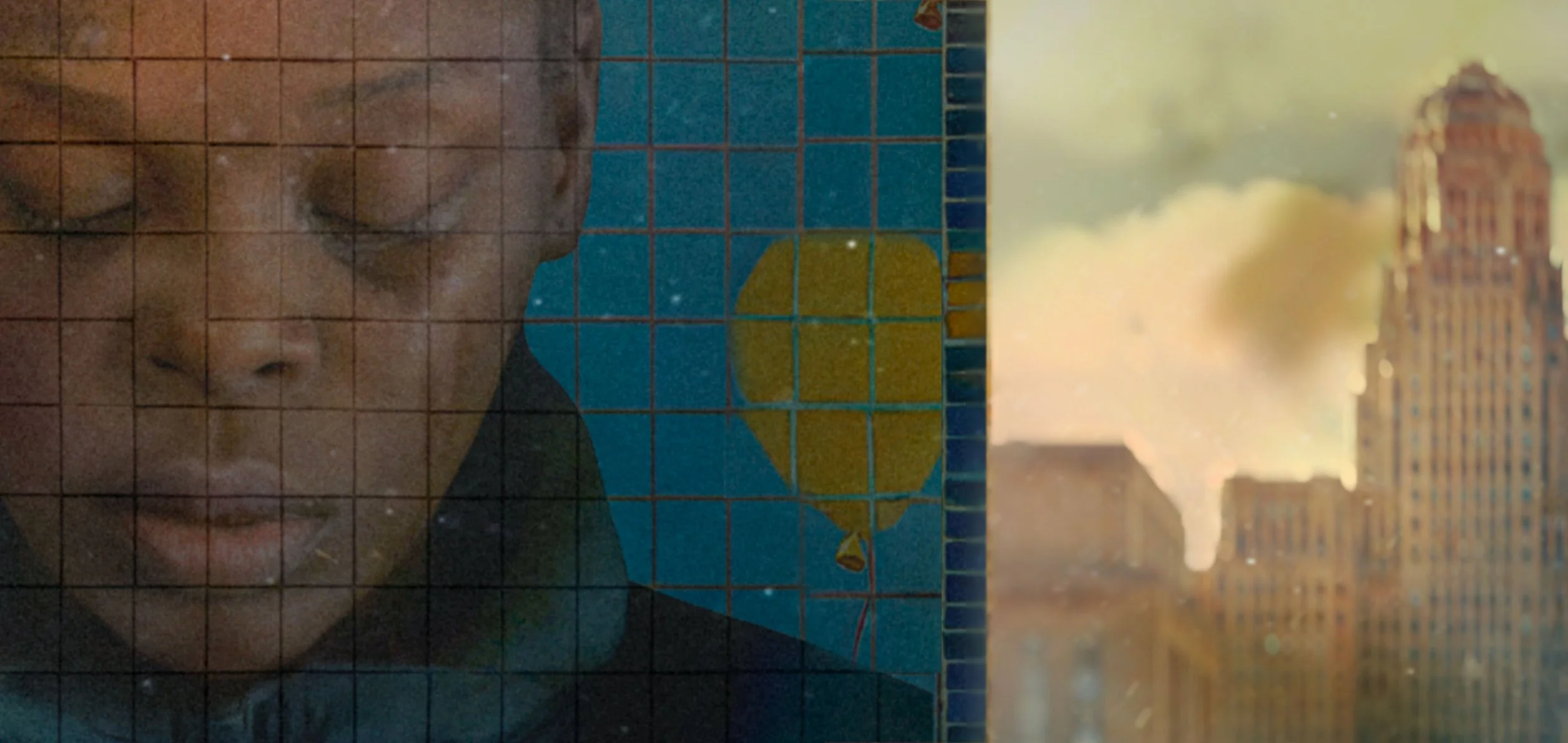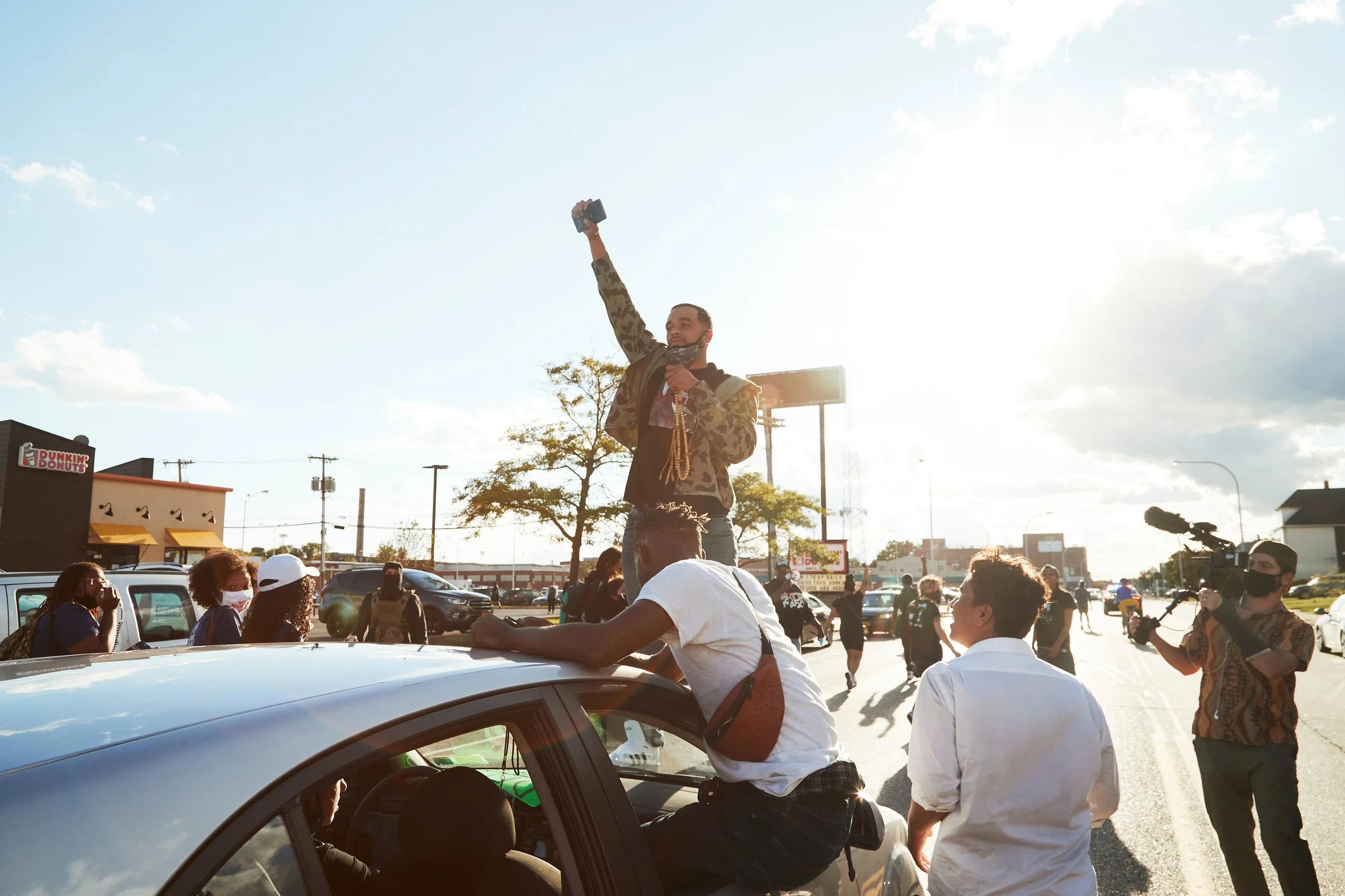
In the fog of grief and protest, Deyanna Davis, a young Black mother, survives a near fatal collision with a police officer in Buffalo. As the community rallies to clear her name, she faces a choice: surrender her voice, or risk repeating a cycle that’s haunted her family for generations.
synopsis
On June 1st, 2020, Deyanna Davis’ drive home from a funeral ends in a near-death collision with a state trooper. Accused of acting with intent, Deyanna, a young Black mother, becomes a symbol of polarizing narratives surrounding racial justice and policing. Denied medical care for her life-threatening injuries, her case ignites protests and an occupation of Downtown Buffalo, New York. Among her defenders is Myles Carter, a Muslim activist and single father of five, who witnessed the incident and takes on the fight for her freedom while navigating his own personal sacrifices.
Across four years, Deyanna’s family confronts the weight of generational trauma that surfaces in her trial. Her mother and her grandmother both faced similar battles against the justice system, underscoring a legacy of struggle that Deyanna must now contend with. As her case grows more convoluted—with unsavory media representation, an unregistered handgun, and wavering legal representation — Deyanna faces an impossible choice. Accepting a plea deal to avoid an uncertain trial, she is forced to surrender her voice to a system indifferent to the complexities of her life. While imprisoned, she gives birth to her sixth child and begins a journey of faith, healing and self-discovery.
Thank You for Thinking of Me is a story of survival, resistance, and recovery. Through the intertwined lives of Deyanna and Myles, the film exposes the human cost of systemic injustice, compelling viewers to bear witness to the enduring fight of those erased by the system but unyielding in their pursuit of justice and dignity.

“This story taught me that the true measure of justice is not merely absolving the innocent and holding the guilty to account. It is the courage to open our hearts to areas of gray, and consider the full humanity of the accused before issuing a judgment.”
— الشبلي Akram محمد, Director
director’s statement
"When my parents moved to Buffalo, NY, they sought refuge from the oppressive state violence of the Assad regime in Syria. To them, America represented liberation-a promise of a state designed to protect the rights of its citizens rather than suppress them.
We found community here, practiced our religion, and came to the sobering realization that even in America, freedom has its limitations.
I myself have been a direct victim of police brutality at the U.S. -Canada border, targeted by harmful assumptions about my ethnicity and faith.
My personal connection to these issues and my community is the foundation of this film.
For years, I documented life at my mosque. People grew accustomed to seeing me with a camera; it became a part of my being. This trust allowed me to document the lives of my neighbors organically, capturing unscripted moments of passion, humor, and dedication.
That trust extended to my friendship with Myles Carter, who collaborated with me on initiatives to brighten Buffalo's East Side. Together with his voice and my filmmaking we successfully raised a new playground for the children in our community. In June 2020, Myles was assaulted on live television during a non-violent protest. As police sought to discredit him as an agitator, I felt duty-bound to tell his story.
However, in the weeks of advocacy that followed, Myles seldom thought of himself. He was thinking of Deyanna Davis.
Deyanna was incarcerated in the Erie County Holding Center for nearly 40 days that summer. She was aware of our efforts to advocate for her release, but she did not know us and we did not know her. Knowing someone is not a pre-requisite for caring, and as I documented this quest for justice, I witnessed like never before the power of empathy to mobilize a community.
Incarceration has touched every generation of Deyanna's family. Her efforts to break the cycle-starting a business, pursuing a Master's degree, closely raising her children—were no match to institutional barriers and the weight of inherited trauma.
At first, Deyanna was reluctant to open up. Caught in a legal nightmare, made notorious by the news media, and the subject of polarizing and often vicious discourse online, her caution was understandable. As her trial date neared, however, she felt a calling to tell her story and invited me into her home.
In the days leading up to the trial's inevitable conclusion, Deyanna became increasingly vulnerable. Her candid disclosure reveals hidden truths about the interconnected nature of domestic and state violence. As time wore on, we abandoned the staged relationship between filmmaker and participant and formed a friendship. Our conversations went beyond her ordeal to challenges with her family, love, and her relationship with God.
Between the humor, the hardship, and her children growing and changing throughout the years, this story personalizes the necessary discourse around racial injustice in the wake of 2020's global uprising for Black lives.
This story taught me that the true measure of justice is not merely absolving the innocent and holding the guilty to account. It is the courage to open our hearts to areas of gray, and consider the full humanity of the accused before issuing a judgment.
With the backing of over 1,000 donors worldwide, this film was made possible by a collective resolve for change.
Thank you for thinking of us."